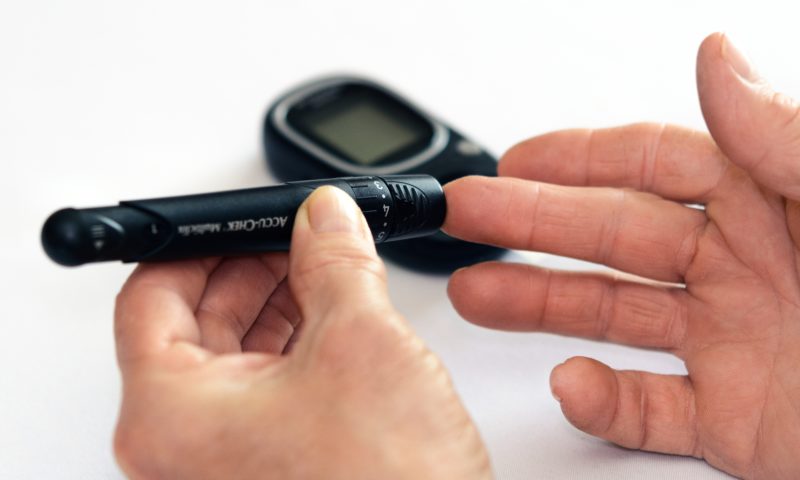November is National Diabetes Awareness Month – and just like weight, the topic of diabetes needs a shift in how we talk about it.
Many people affected by diabetes experience a great deal of shame and stigma regarding their health. It’s time we change those attitudes and talk openly about diabetes (and weight) to better support patients and their loved ones.
Fast Facts about Diabetes
- It is a disease where your blood sugar (glucose) is too high and your cells do not use insulin correctly.
- One in 10 Americans (> 30 million people) is affected.
- It can increase your risk for other diseases like heart and kidney disease and stroke.
- Our healthcare system spends billions of dollars each year to treat it.
It is important that you know there are two types of diabetes:
- Type 1: Your body does not make insulin. This can be from genetic, autoimmune and environmental factors. Only 5-10% of diagnosed diabetes cases have this type.
- Type 2: Your body does not make or use insulin well. This is the most common type and anyone at any age can develop it.
Where Does Weight Come in?
Insulin resistance is a major factor that contributes to diabetes. None one knows for sure why some people develop it, but we do know that excess weight makes it worse.
At any age, having excess weight can put you at risk for diabetes. This risk is actually three to seven times higher than for those with a healthy weight. A person with a BMI (body mass index) greater than 35 is also 20 times more likely to develop issues with blood sugar and insulin resistance. In addition, the location of excess body fat is important. Someone who carries most of their excess fat in the abdomen has a higher risk for diabetes, as opposed to someone who carries excess weight more evenly.
We also know that weight-loss can help manage diabetes or put it in remission. That is why weight-loss is part of the treatment plan for many patients. However, just like overweight and obesity, diabetes is complex and many factors affect it.
Diabetes Treatment and Weight-loss
We know that diabetes and excess weight are related. Healthcare professionals recommend weight-loss for most patients that need treatment for both. Even weight-loss as little as 5-10% can make a big difference! Programs that involve a healthy diet, regular exercise and behavior modification can treat both health conditions. However, in some cases, patients may need extra help through medication and/or bariatric surgery. In this case, they should speak with an obesity medicine physician.
Helpful Management Tips:
- Limit how many complex carbs you eat because they raise blood sugar. Foods like bread, rice, pasta, potatoes, cereal, peas and sweet treats have a lot.
- Eat more fiber to help with weight-loss and control your blood sugar.
- Exercise on a regular basis to manage your weight and improve insulin sensitivity. Aim for 30 to 45 minutes of moderate-intensity exercise five days per week.
- Use a fitness tracker to track your activity level. Add strength-based exercise into your fitness plan.
- Talk to a healthcare provider if you feel you may need additional help.
Tying it All Together
Diabetes and excess weight are both complicated and hard to manage. Still, treating excess weight is extremely helpful to the treatment of diabetes. Preventing excess weight is even more effective. This is most easily achieved by healthy lifestyle changes.
If you or a loved one has diabetes and/or excess weight, reach out for support from those you trust. Most importantly, talk to a healthcare professional to talk about your treatment options. You should not be ashamed to seek help and you should not have to manage your health alone.
For more information about obesity and diabetes, CLICK HERE to read a past article on this topic from the OAC’s Weight Matters Magazine.






